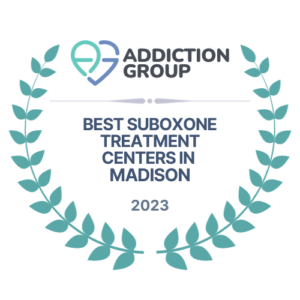

Alcohol is a psychoactive, toxic, and addictive substance. In contemporary societies, alcoholic beverages are an integral part of the social activities of many individuals. In this circumstance, it is easy to disregard or neglect the damage that drinking causes or contributes to one’s health and society.
The short-term consequences of consuming alcohol are well known, but the long term effects of alcohol addiction should not be ignored. There are a variety of health effects of alcoholism that can last for years or even decades, beyond the occasional hangover and the transient high.
This article examines the long term effects of alcohol addiction on health in order to equip you with the knowledge you need to make an informed decision about your own drinking habits.
Physical Long-Term Effects of Alcohol Addiction
Chronic diseases and other serious issues may eventually develop as a result of excessive alcohol use.
Liver
Alcohol’s harmful effects on the liver are a clear indication of its potential to significantly harm the body’s vital organs. The liver, a remarkable multitasker responsible for detoxification and metabolism, bears the brunt of alcohol abuse.
Cirrhosis and Liver Damage from Alcohol: Long-term alcohol addiction can lead to cirrhosis, a progressive and irreversible scarring of the liver tissue. The liver’s functionality deteriorates as scar tissue replaces healthy cells, which causes a number of health problems.
Fatty Liver Disease: An early sign of alcohol-induced liver trouble, fatty liver disease involves the accumulation of fat within liver cells. It can develop into more serious conditions if left untreated.
Alcoholic Hepatitis: Alcoholic hepatitis, which causes inflammation of the liver, can range in severity from mild to severe and occasionally be fatal. It’s often a result of heavy, prolonged drinking.
Cardiovascular Health and Long Term Effects of Alcohol Addiction
Alcohol addiction affects more organs than just the liver, including the cardiovascular system, which you might not immediately link to binge drinking.
High Blood Pressure: Consuming alcohol over a long period of time raises blood pressure, which increases the risk of heart disease and stroke. Alcohol addiction’s detrimental effects include stress on the cardiovascular system.
Increased Risk of Heart Disease and Stroke: Alcoholism weakens the heart muscle and interferes with blood pumping efficiency, which can lead to the development of heart disease. Furthermore, it increases the risk of strokes, adding to the myriad of health issues.
Gastrointestinal Effects of Drinking
The gastrointestinal system is also susceptible to the corrosive effects of alcohol, in addition to the liver.
Gastritis and Ulcers : Alcohol can irritate the stomach lining, leading to gastritis and ulcers. These conditions may result in pain, bleeding, and discomfort.
Pancreatitis :The pancreas, which aids in digestion and regulates blood sugar, is prone to inflammation as a result of alcoholism. Pancreatitis can be a painful and serious condition.
Immune System Suppression by Alcohol
Alcohol addiction’s lesser-known side effect is the suppression of the immune system, which makes the body more susceptible to infections.
Mental Health and Alcohol Addiction
Although alcohol may seem to offer momentary relief from mental stress, its long-term effects on mental health can be very concerning.


Depression and Anxiety from Alcohol: An increased risk of developing anxiety and depressive disorders is associated with alcohol addiction. What may initially provide a sense of escape can ultimately worsen these conditions.
Potential Exacerbation of Pre-existing Mental Health Conditions: Alcoholism can worsen symptoms in people who are already struggling with mental health problems and prevent them from receiving effective treatment.
Neurological Consequences: Alcohol has a significant and wide-ranging impact on the brain, which affects cognition and overall neurological function.
Cognitive Impairment due to Alcoholism: Alcoholism over a long period of time can impair memory, attention, and decision-making, causing cognitive decline. These impairments can have serious personal and professional repercussions.
Wernicke-Korsakoff Syndrome: A severe neurological disorder caused by thiamine (Vitamin B1) deficiency, frequently observed in chronic alcoholics. It can lead to memory loss, confusion, and impaired coordination.
Social and Emotional Impact
Alcoholism has a significant impact on a person’s social and emotional health, in addition to its physiological effects.


Get the help you deserve today. Start your journey to recovery by contacting us!
Strain on Personal Relationships and Social Networks: Addiction can strain relationships with family and friends, leading to social isolation and a sense of disconnection. As loved ones see the damaging effects of alcohol, trust may be lost.
Loss of Employment and Financial Stability: The decline in health and cognitive function can make maintaining employment challenging. The general quality of life may then deteriorate due to financial instability.
Stigma and Self-Esteem: Alcoholism is stigmatized, which can amplify feelings of guilt and shame and make one feel bad about themselves. Overcoming this stigma is often a crucial step in recovery.
Long-Term Recovery Challenges
Reclaiming one’s life from the grip of alcohol addiction is a monumental journey, riddled with challenges that test both physical resilience and mental fortitude.
Difficulties of Overcoming Alcoholism: Long-term alcoholism can be conquered by addressing both the physical dependency and the deeply ingrained psychological patterns. Those who are trying to heal may find it difficult to break away from the comforts of the familiar and embark on the path to wellness.
Relapse Prevention: The fact that relapse is a frequent barrier to recovery emphasizes the chronic nature of addiction.
Physical and Emotional Challenges: The recovery process can be emotionally and physically demanding due to withdrawal symptoms, detoxification, and the emotional whirlwind of confronting past events and traumas.
Seeking Help and Treatment Options
Understanding the available treatment options and recognizing the need for assistance are crucial steps on the road to recovery.
Alcohol Detoxification Programs: Programs for detoxification under medical supervision provide a structured method for safely managing withdrawal symptoms and ending the cycle of physical dependence.
Inpatient and Outpatient Rehabilitation: While outpatient programs give people with personal and professional commitments flexibility, inpatient rehabilitation from alcoholism offers intensive care and a regulated environment for recovery.
Therapy for Alcohol Addiction: Therapeutic interventions like cognitive-behavioral therapy and counseling address the psychological aspects of addiction by giving people coping mechanisms and tools for long-term recovery.
It is crucial to seek advice from medical professionals, therapists, and addiction specialists as you navigate the journey’s difficulties. Their knowledge and experience can deliver customized support that raises the possibility of a successful recovery.


Final Thoughts on the Long Term Effects of Alcohol Addiction on Health
Alcohol Addiction has a big impact on many parts of our lives, from the smallest details of our mental health to the most complicated parts of how our bodies work.
Understanding the long term effects of alcohol addiction on health is essential for both individuals and society as a whole. By examining these consequences, we gain a deeper understanding of the complex effects of addiction, which can help foster empathy and drive efforts towards prevention. This knowledge allows us to provide better support to those struggling with alcohol addiction and make informed decisions about our own alcohol consumption.
Interested in learning more? Read more related articles: Alcohol Addiction: Recognizing the Signs and Symptoms
Contact National Addiction Specialists For Your Recovery
Need Help?
If you are concerned about your alcohol use and would like to explore whether you might have AUD, National Addiction Specialists is here to help and support you!
Sources
Drinking too much alcohol can harm your health. Learn the facts | CDC. (2022, April 14). Drinking Too Much Alcohol Can Harm Your Health. Learn the Facts | CDC. https://www.cdc.gov/alcohol/fact-sheets/alcohol-use.htm
Alcohol’s Effects on the Body | National Institute on Alcohol Abuse and Alcoholism (NIAAA). (n.d.). Alcohol’s Effects on the Body | National Institute on Alcohol Abuse and Alcoholism (NIAAA). https://www.niaaa.nih.gov/alcohols-effects-health/alcohols-effects-body
Health Risks of Alcohol. (2023, May 15). WebMD. https://www.webmd.com/mental-health/addiction/addiction-heavy-drinking
Effects of Alcohol on the Body. (n.d.). Effects of Alcohol on the Body. https://www.healthline.com/health/alcohol/effects-on-body
Wernicke-Korsakoff Syndrome | National Institute on Alcohol Abuse and Alcoholism (NIAAA). (n.d.). Wernicke-Korsakoff Syndrome | National Institute on Alcohol Abuse and Alcoholism (NIAAA). https://www.niaaa.nih.gov/publications/brochures-and-fact-sheets/wernicke-korsakoff-syndrome
(2022, July 11). Excessive Alcohol Use. Centers for Disease Control and Prevention. https://www.cdc.gov/chronicdisease/resources/publications/factsheets/alcohol.htm
https://www.apa.org/topics/substance-use-abuse-addiction/alcohol-disorders. (n.d.). https://www.apa.org/topics/substance-use-abuse-addiction/alcohol-disorders













